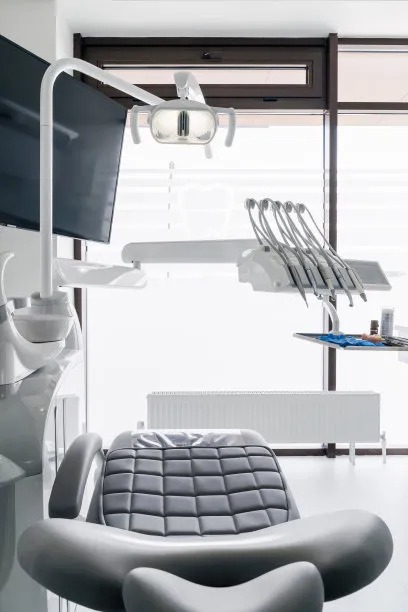The Importance of Proper Dental Care Before and After Extracting a Tooth for Optimal Healing
Summary: Proper dental care is essential both before and after tooth extraction to ensure optimal healing and prevent complications. This article delves into the critical aspects of dental hygiene, preparations for the procedure, post-extraction care, and the role of professional guidance. Emphasizing thorough cleaning, careful attention to dietary restrictions, and follow-up visits, we outline how following these protocols contributes to a smoother recovery process. Ultimately, understanding the importance of these practices can lead to better outcomes and a quicker return to daily activities.
1. Importance of Pre-Extraction Dental Hygiene

Maintaining exemplary dental hygiene is crucial before undergoing a tooth extraction. A clean mouth significantly lowers the risk of infections that could complicate the extraction process. Regular brushing and flossing, along with antiseptic mouthwashes, can reduce the bacterial load in the oral cavity, creating a safer environment for the procedure.
In addition to standard hygiene practices, it is advisable to visit a dentist for a professional cleaning. A dental hygienist can ensure that any plaque or tartar buildup is removed, which contributes to healthier gums. This professional cleaning not only prepares your mouth for the extraction but also sets a positive tone for your overall dental health.
Lastly, patients should avoid smoking and the consumption of alcohol in the days leading up to their appointment. Both substances can hinder the body’s ability to heal and may increase inflammation, making surgery riskier. Therefore, taking these precautions is vital for a smooth extraction process.
2. Preparing for the Extraction Procedure
Proper preparation for tooth extraction goes beyond dental hygiene. Patients should inform their dentist about any medications they are currently taking, including over-the-counter drugs and supplements. Some medications may need to be adjusted or paused to minimize bleeding and ensure safer anesthesia administration.
Moreover, arranging for post-extraction transportation is a key step. Anesthesia, whether local or general, may impair coordination and judgment. Having a friend or family member available to drive you home is essential to ensure your safety after the procedure.
Finally, creating a comfortable recovery space at home can significantly enhance post-operative healing. Ensuring that you have a quiet area stocked with the necessities—such as ice packs, soft foods, and pain relief medications—will help you focus on recovery rather than discomfort.
3. Post-Extraction Care Guidelines
Caring for your mouth following a tooth extraction is critical in promoting optimal healing. First and foremost, biting down on a gauze pad is essential to control bleeding. Changing the gauze as necessary helps maintain pressure on the extraction site and minimizes the risk of complications such as dry socket.
Second, adhering to dietary guidelines is crucial during the initial recovery period. Soft foods that require minimal chewing, such as yogurt, applesauce, and mashed potatoes, should be incorporated into your diet for the first few days. This dietary choice prevents irritation of the extraction site and aids in a smooth recovery.
Finally, regular oral care should continue but should be approached cautiously. Patients should avoid rinsing vigorously for the first 24 hours after surgery. Nonetheless, gentle rinsing with salty water after this period can promote healing and reduce the risk of infection.
4. Importance of Follow-Up Visits
Follow-up visits to the dentist are a fundamental part of the recovery process. Such appointments allow the dentist to assess the healing progress and address any complications that may arise. Regular monitoring can prevent issues like infections or improper healing.
Additionally, these visits provide an opportunity for extractions to be evaluated for any remaining infection or inflammation. Should complications occur, prompt intervention can significantly reduce recovery time and discomfort.
Lastly, follow-up visits encourage better dental habits and education concerning overall oral health. The dentist can provide valuable insights into maintaining oral hygiene and preventing future dental problems, making these appointments beneficial beyond just the extraction.
Summary:
In summary, proper dental care is indispensable both before and after tooth extraction. Prioritizing dental hygiene, preparing effectively for the procedure, adhering to post-extraction care guidelines, and attending follow-up visits are vital for optimal healing. Through these steps, patients can significantly reduce the risk of complications and enhance their overall recovery experience.
This article is compiled by Vickong Dental and the content is for reference only.



